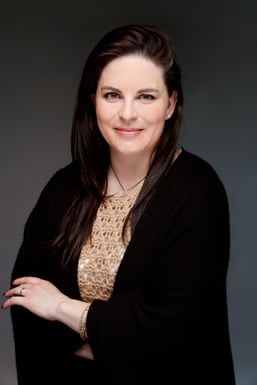
The VIC Fellows Program provides an opportunity for individuals with relevant expertise and interest to learn how to identify and evaluate promising innovations from global sources. We are pleased to highlight the members of the 2022-2023 class of Fellows in our ongoing series of interviews, such as this recent discussion with Alexandra Antonioli, MD, PhD.
Please tell us about yourself and your background.
I was born and grew up in southwest Montana before attending Yale University for my undergraduate degree in Molecular Biophysics and Biochemistry (MB&B). Following my undergraduate graduation, I was a researcher and lab manager in a biochemistry lab with experiments focused on using RNA crystallography to understand structure/function relationships. I later joined the Medical Scientist Training Program (MSTP) at the University of Colorado Anschutz Medical School, where I completed a combined MD and PhD. During the first two years of medical school, I became very interested in autoimmune disease and the role of the innate immune system (complement system) in driving or preventing disease. My PhD in Molecular Biology focused on understanding regulators of the alternative pathway of complement. When I returned to medical school after completing my PhD, I became fascinated by the brain and how relatively little we know about the mechanisms of mental illness. Around this time, an important study was published showing for the first time a genetic link between schizophrenia and excessive complement activity. Fascinated by the potential role of the immune system in driving mental illness, I decided to complete my residency in Psychiatry and continue to do research. I am currently a fourth-year Psychiatry Research Track resident at UT Southwestern and plan to complete a Research Fellowship.
Your position at UT Southwestern in Dallas has provided you with a broad view of technologies and therapeutics applications.
A. What insights have you gained from your experience about the need for early-stage technologies/therapeutics to move forward successfully?
I have only been a VIC Fellow for a little over two months at this point, but I have learned that early-stage technologies and therapeutics need to be able to be quickly validated and meet the current demands and trends in the market. Emerging infectious diseases, such as COVID-19 and now monkeypox have shown us the importance of rapid manufacturing of vaccines, diagnostic tests, and treatments.
B. What insights do you hope to gain from the VIC Fellows program that may help you recognize the potential for technology/therapeutics commercialization success?
The VIC program offers an extremely valuable opportunity for individuals like myself who have been completely in the academic realm. I’ve already learned and participated in the opportunity assessment process and in weekly meetings where NewCos are discussed. I also have weekly meetings and discussions with a mentor with years of experience in academics and as a co-founder and CTO.
What life science findings/ trends excite you most regarding their potential for commercialization or their need to enter commercialization paths?
I am very excited by technologies that aim to personalize medicine. As a psychiatrist, I can have two patients with similar symptoms on the same antidepressant medication and one patient will do very well while the other patient may experience side effects or find no benefit from treatment. The other patient may have done better with a referral for therapy. However, there is no way to accurately predict who might benefit more from medication, therapy, or a combination (note- a combination of therapy and medication has been shown to provide the best results). I also believe that better utilization of digitalized assessment tools (such as depression, anxiety, and substance use screening) combined with small, inexpensive wearable technologies that monitor everything from sleep, activity, temperature, oxygenation, and heart rate- will revolutionize psychiatry and the medical field. Having more objective data along with a patient’s subjective data will enable doctors to provide more comprehensive care to patients.
Do you see yourself becoming an entrepreneur or wanting to be best positioned to promote entrepreneurship?
Entrepreneurs have an exciting, rewarding, and extremely rigorous job! I have always felt that I have an entrepreneurial spirit and can imagine a portion of my career devoted to academic entrepreneurship, entrepreneurship research, or promoting entrepreneurship. I have always been drawn to academic settings because they can be extremely creative spaces with a concentrated pool of talented individuals. However, I think that the scientists and physicians at academic centers are more distant and isolated from the actual customers or targets that may benefit from their technologies or products. My hope is to help bridge the gap between academics and industry.
With your experiences in the life sciences ecosystems, what do you see for the future of health innovation in the US?
Despite the market this year, I think it’s an incredible time for biotech and the life science ecosystems. There is an incredible opportunity available for inventors and I think we will continue to see money raised during 2019-2020 be deployed in the coming two years. I imagine we will see an increase in the speed and accuracy of diagnostic testing and a continued trend toward improving quality and delivery of telemedicine.
Any words of wisdom for folks interested in applying to the VIC Fellows program?
Just apply! If you have ever wondered about the commercialization process and have an interest in entrepreneurship, working with inventors, and assessing incredible new technologies, this is a terrific career opportunity for you. I think the key is to be open to learning and accepting that there are many areas that you may not be familiar with, but over time, you will be able to develop a unique skill set and understanding of what it takes to identify a new technology and take it to market.

